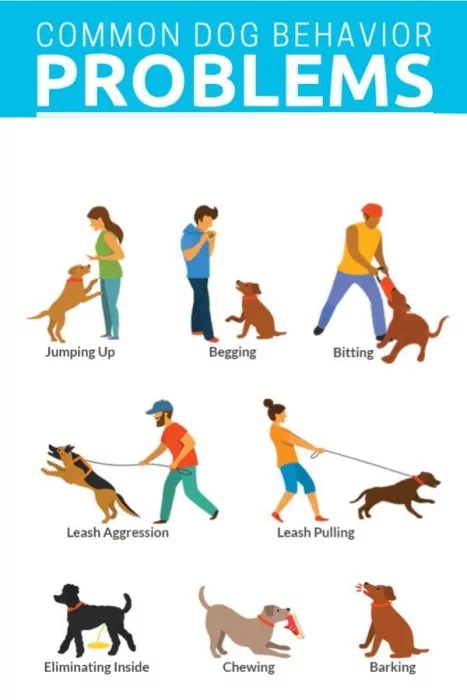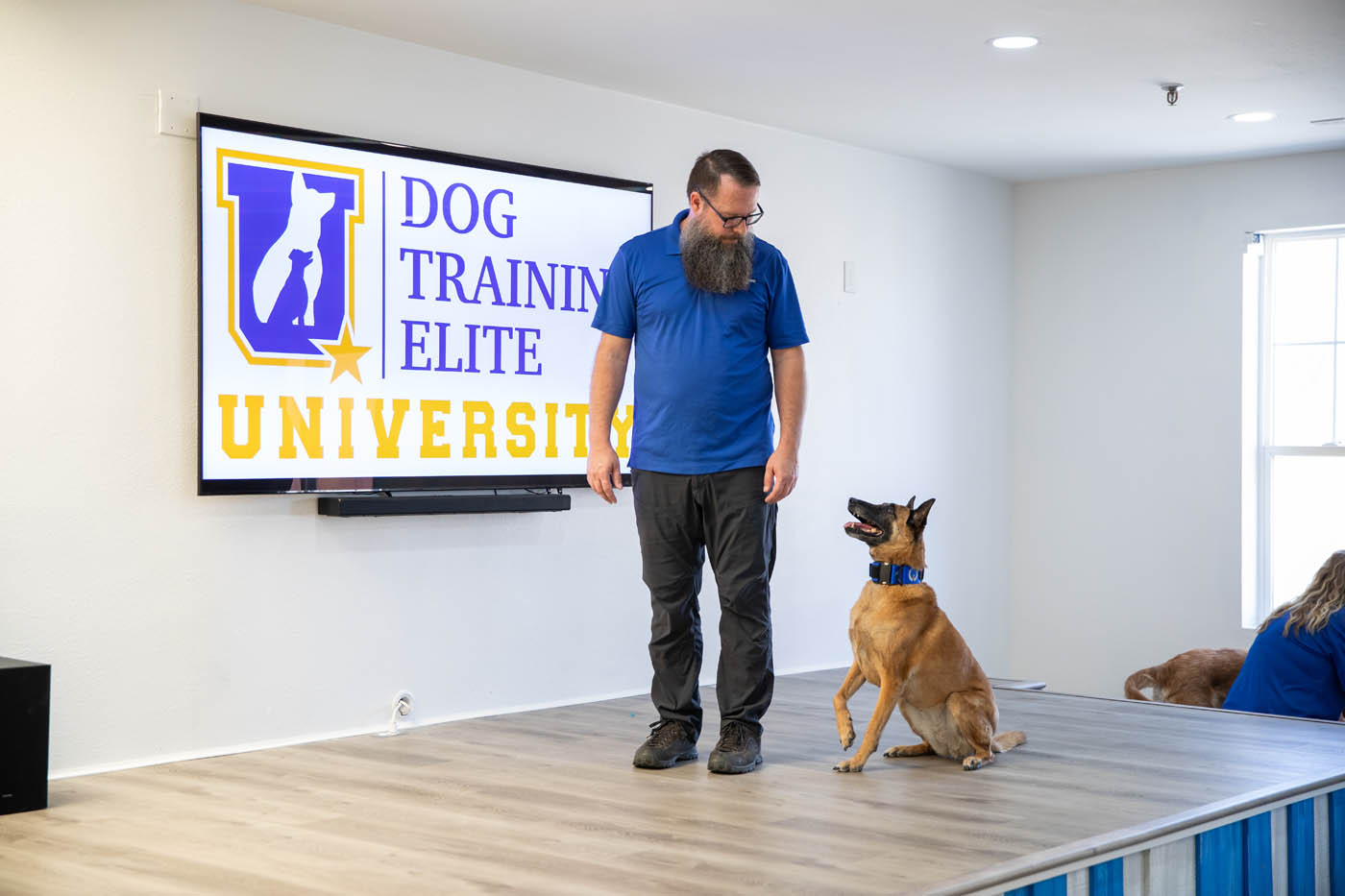Unlock Your Pet's Possible: Proven Canine Training Techniques for Success
Effective dog training is a nuanced process that hinges on comprehending canine habits and employing scientifically backed methods. By including favorable support, establishing clear commands, and focusing on socializing, canine proprietors can grow an efficient connection with their animals.
Understanding Pet Habits
Understanding pet dog habits is vital for efficient training and cultivating a favorable relationship between dogs and their owners. A detailed understanding of canine body movement, vocalizations, and social interactions is critical for recognizing their emotions and requirements. Dogs interact mostly with non-verbal cues; for instance, a wagging tail might show enjoyment, while pinned ears can signal concern or entry.

In addition, ecological variables play a considerable function in shaping a dog's actions. Adjustments in routine, new environments, or the presence of strange individuals can cause tension or anxiousness in pets. Identifying these triggers makes it possible for owners to alleviate damaging reactions and create proper training strategies.
Inevitably, a deep understanding of pet behavior lays the structure for effective training techniques, boosting both habits and the overall bond between the dog and its owner. dog training charlotte nc. This understanding is essential for cultivating a well-adjusted, delighted canine buddy
Positive Support Methods
Reliable training counts greatly on positive support techniques, which have been revealed to yield considerable lead to forming wanted behaviors in pet dogs. This approach includes awarding a pet for exhibiting particular habits, therefore raising the possibility that these habits will be duplicated. Rewards can take different forms, including treats, appreciation, playthings, or playtime, depending upon what encourages the private pet dog.

It is vital to gradually terminate incentives as the pet dog discovers the habits, transitioning to intermittent support. This strategy keeps the behavior over time while stopping reliance on continuous benefits. By concentrating on positive reinforcement, trainers can grow a trusting connection with their pet dogs, advertising a healthy and participating training environment that boosts general obedience and performance.
Establishing Consistent Commands
A basic facet of effective pet training is the facility of consistent commands. Consistency in commands is critical for efficient interaction in between the trainer and the dog. When commands are uniform, pet dogs find out to link specific words with wanted behaviors, which accelerates the training procedure and enhances understanding.
To develop consistent commands, it is vital that all relative utilize the same terminology and gestures. If one person uses "sit" while an additional claims "sit down," it can create confusion for the pet. Select clear, distinctive words for commands and guarantee everyone associated with the dog's training complies with these options.
Reinforce commands via constant technique, guaranteeing that the canine gets enough chances to respond appropriately. When a pet dog successfully complies with a command, immediate favorable reinforcement should follow.
Lastly, hold your horses. Developing constant commands requires time and effort. With dedication and clarity, you will aid your pet create a strong understanding of assumptions, inevitably causing a mannerly friend.
Socializing and Exposure
Interacting socially a pet is important for cultivating a certain and well-adjusted companion. This process includes subjecting your pet dog to a selection of settings, individuals, and other pets to develop their social abilities and adaptability. Early socializing, preferably between the ages of three to fourteen weeks, is critical, as it more lays the groundwork for a pet's future habits.
During socializing, objective to supply favorable experiences in various setups, such as parks, busy streets, and homes with various other animals. Introduce your canine to different stimulations, including sounds, sights, and smells, making sure that each experience is fulfilling. This direct exposure assists reduce anxiety and stress and anxiety, leading the way for an extra resilient dog.
Taking part in controlled team play sessions with various other pets can additionally improve social abilities, showing your pet dog proper communications and boundaries. Always monitor your pet dog's comfort level during these experiences, progressively increasing exposure as their confidence grows. Bear in mind, the objective is to develop an all-around family pet that prospers in diverse circumstances, advertising an unified relationship with both people and various other pets. Prioritizing socializing will significantly add to your canine's general joy and behavior throughout their life.
Overcoming Common Training Challenges

Pet dogs might struggle to focus in busy or strange settings. Gradually desensitize your dog to disturbances by starting training in a silent atmosphere and slowly presenting even more stimulations as read this post here they become skillful.
Furthermore, behavioral issues like jumping or extreme barking can end up being discouraging. Address these by instructing alternate actions, such as sitting smoothly when welcoming guests. Consistency and persistence are critical; reinforce desired behaviors consistently and stay clear of abuse, which can result in complication.
Finally, recognize that each pet is distinct, and training timelines might differ. Tailor your approach to your pet dog's specific demands, and look for professional assistance if essential. With perseverance and the ideal approaches, overcoming these difficulties can bring about a well-trained, delighted canine friend.
Conclusion
In conclusion, unlocking a canine's potential necessitates an extensive method that integrates an understanding of canine actions, the application of positive reinforcement techniques, and the establishment of consistent commands. Early socialization and exposure to varied atmospheres additionally improve a dog's flexibility and confidence. By addressing common training obstacles with customized techniques and perseverance, a unified and cooperative connection between dog and handler can be fostered, eventually resulting in a mannerly companion with the ability of flourishing in numerous situations.
Reliable canine training is a nuanced procedure that hinges on recognizing canine behavior and using clinically backed approaches.Comprehending pet behavior his comment is here is essential for efficient training and cultivating a positive connection in between canines and their proprietors.Reliable training relies greatly on positive reinforcement strategies, which have been shown to generate significant results in forming desired habits in pet dogs. When commands are consistent, canines discover to link particular words with desired habits, which increases the training procedure and enhances understanding.
In final thought, opening a pet's potential necessitates a detailed strategy that incorporates an understanding of canine behavior, the application of positive support strategies, and the facility of consistent commands.